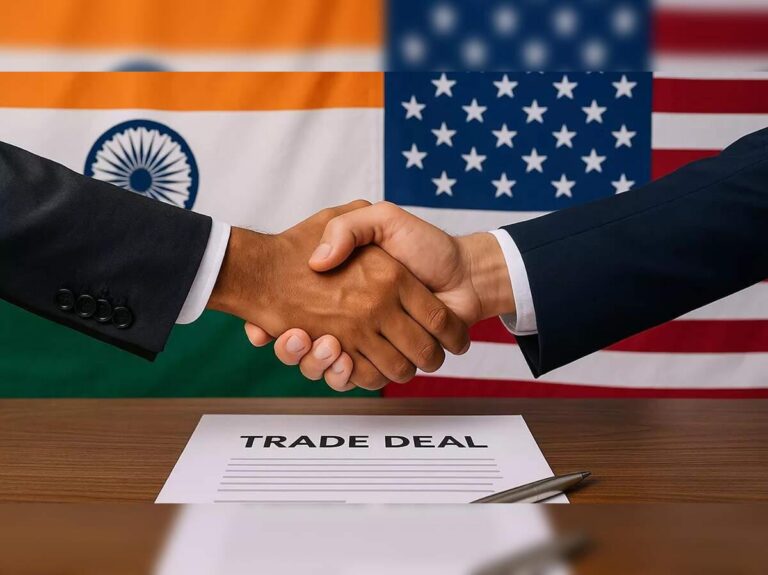India Advances Trade Deal Negotiations with US to Foster Economic Partnership
India is ramping up diplomatic efforts to finalize a long-awaited trade agreement with the United States, coinciding with preparations for a significant high-level delegation visit to Washington. This initiative highlights the mutual ambition to deepen economic cooperation and resolve persistent trade challenges, potentially unlocking new avenues for market access and joint ventures. Insiders reveal that talks are entering a decisive stage, with focused discussions aimed at bridging differences before the upcoming diplomatic engagement. This renewed momentum reflects both countries’ commitment to strengthening bilateral trade amid a shifting global economic environment.
Primary objectives under discussion include:
- Lowering tariffs on critical industries such as pharmaceuticals, technology, and agriculture
- Enhancing customs efficiency and regulatory harmonization to expedite trade
- Establishing cooperative frameworks for innovation, digital commerce, and data exchange
- Mitigating non-tariff obstacles impacting Indian micro, small, and medium enterprises (MSMEs)
| Industry | India’s Export Revenue (2023, USD billion) | US Average Import Tariff (%) |
|---|---|---|
| Pharmaceuticals | 18.2 | 2.3 |
| Information Technology | 13.1 | 0 |
| Agriculture | 10.2 | 9.8 |
| Textiles | 7.0 | 7.5 |
Major Obstacles and Contentious Issues in India-US Trade Negotiations
Despite ongoing high-level dialogues, India-US trade talks face several intricate challenges that have hindered swift progress. Core disagreements revolve around sector-specific concerns, notably in agriculture, pharmaceuticals, and technology transfer policies. India advocates for protective measures to shield its domestic industries and workforce, whereas the US pushes for expanded market entry and reinforced intellectual property safeguards. Furthermore, contrasting stances on digital trade regulations, including data localization and cross-border data flows, continue to complicate negotiations.
- Tariff negotiations: Divergent views on tariff cuts for key commodities remain unresolved.
- Non-tariff barriers: Differences in regulatory standards and certification processes impede trade efficiency.
- Trade defense measures: Disputes over anti-dumping duties and countervailing tariffs persist.
The table below summarizes the principal concerns from each country’s perspective:
| India’s Priorities | US Priorities |
|---|---|
| Safeguarding smallholder farmers and MSMEs | Greater access for US agricultural exports |
| Flexible intellectual property rules for generic medicines | Stricter enforcement of IP rights |
| Data sovereignty and mandatory data localization | Unrestricted cross-border data flows and cybersecurity standards |
Upcoming Washington Visit to Boost Trade Dialogue and Bilateral Cooperation
The forthcoming official visit to Washington represents a critical juncture for India-US economic relations. Both governments are poised to tackle longstanding trade issues, aiming to reduce tariffs, improve market accessibility, and resolve non-tariff barriers. This high-profile meeting is anticipated to foster enhanced mutual understanding and lay the groundwork for a comprehensive trade agreement that benefits both economies.
Focus areas during the visit include:
- Collaboration in technology and innovation sectors
- Facilitation of pharmaceutical and healthcare trade
- Building resilient and diversified supply chains
- Investment opportunities in renewable energy and infrastructure development
| Trade Sector | Current Challenges | Proposed Solutions |
|---|---|---|
| Information Technology | Visa limitations, data localization requirements | Visa facilitation, bilateral data protection agreements |
| Agriculture | Tariff disagreements, divergent quality standards | Mutual recognition of standards, tariff harmonization |
| Manufacturing | High import duties, complex regulatory environment | Regulatory alignment, selective duty exemptions |
Strategic Policy Suggestions to Strengthen India-US Trade Relations and Market Access
To elevate the India-US trade partnership, policymakers should emphasize harmonizing regulatory standards to eliminate unnecessary trade impediments. Promoting mutual acceptance of certifications and quality benchmarks can significantly lower compliance costs and facilitate smoother trade flows. Establishing regular bilateral trade forums will enable timely dispute resolution and adaptability to evolving market conditions.
Addressing sector-specific challenges through targeted tariff rationalization and incentivizing joint ventures in technology, pharmaceuticals, and clean energy sectors can unlock substantial economic potential. Transparent trade facilitation mechanisms, including simplified customs procedures and robust intellectual property protections, will foster investor confidence and long-term collaboration. The table below highlights critical policy focus areas:
| Focus Area | Policy Recommendation | Anticipated Outcome |
|---|---|---|
| Regulatory Harmonization | Mutual recognition of standards and certifications | Lowered trade compliance costs |
| Tariff Rationalization | Systematic review and reduction of non-tariff barriers | Growth in bilateral trade volumes |
| Trade Facilitation | Streamlined customs and border procedures | Accelerated movement of goods |
| Investment Promotion | Support for collaborative technology and renewable energy ventures | Enhanced innovation and economic diversification |
Conclusion
As India prepares for its imminent delegation visit to Washington, both nations stand at a crucial crossroads to advance trade negotiations that have long been in progress. With economic growth and strategic partnership as shared priorities, this potential trade agreement could mark a significant milestone in Indo-US relations. Stakeholders from both countries are closely observing these developments, optimistic that the forthcoming discussions will lead to stronger commercial ties and mutual economic prosperity in the near term.







